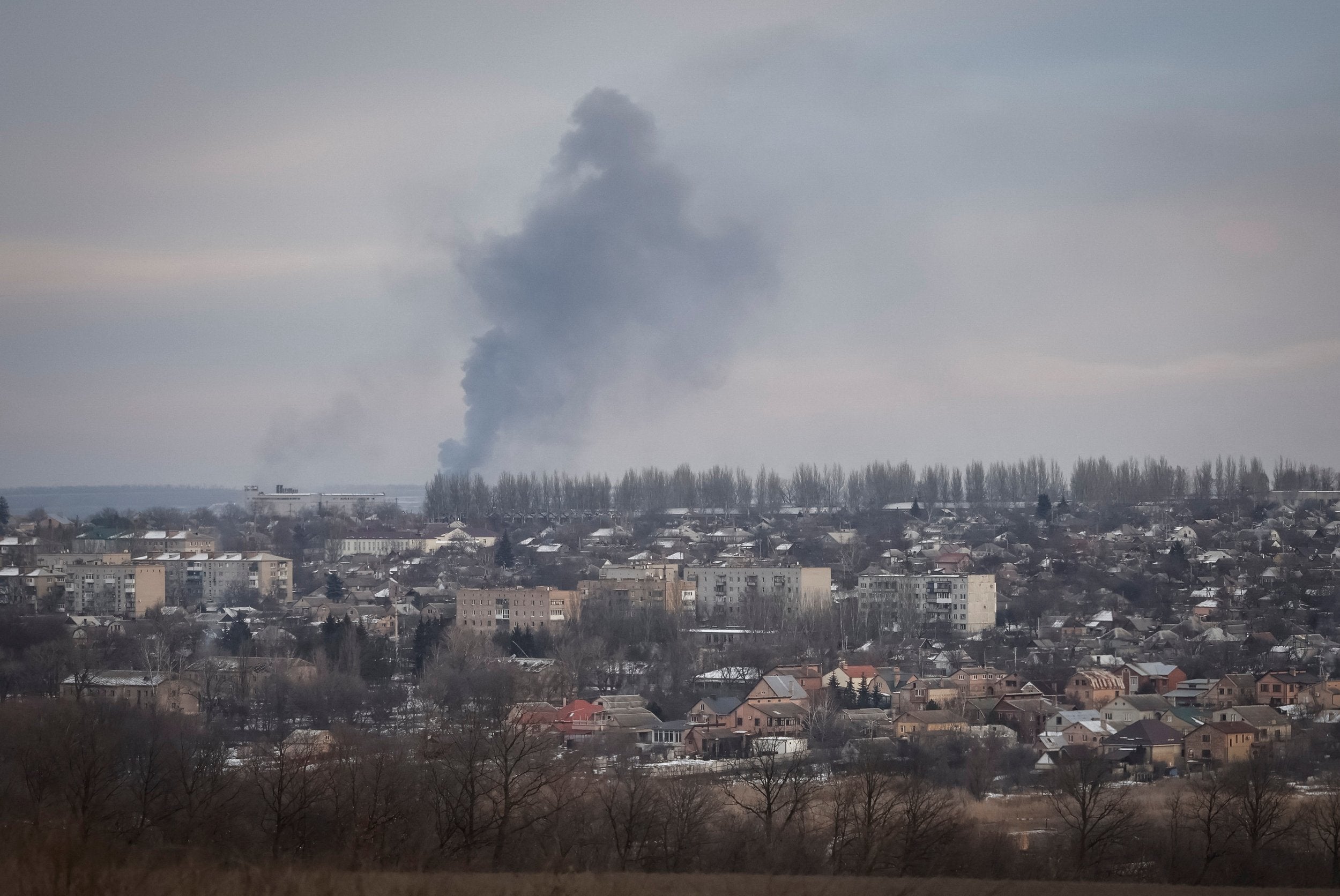
Russia bombards Ukraine as Bakhmut siege grinds on
KYIV (Reuters) -Russia rained missiles across Ukraine on Thursday and struck its largest oil refinery, Kyiv said, while the head of the Wagner mercenary group predicted the long-besieged city of Bakhmut would fall within a couple of months.
Following a pattern of heavy bombardments after Ukrainian battlefield or diplomatic gains, Russia launched 36 missiles in the early hours, Ukraine's Air Force said, after NATO alliance officials met the previous day to plot more support for Kyiv.
About 16 were shot down, it added, a lower rate than normal.
The missiles triggered air-raid sirens and landed all over Ukraine, including its largest oil refinery, Kremenchuk, where the extent of damage was not immediately clear.
"Another massive missile attack by the terrorist state on civilian infrastructure in Ukraine," the Defence Ministry tweeted. Ukraine said the barrage included three KH-31 missiles and one Oniks which its air defences cannot shoot down.
There was no word from Moscow on the strikes.
Bolstered by tens of thousands of reservists, Russia has intensified ground attacks across southern and eastern Ukraine in recent weeks, and a major new offensive appears to be shaping as the first anniversary of its Feb. 24 invasion nears.
The conflict has killed tens of thousands of people, pulverised Ukrainian cities, destabilised the global economy just as it was recovering from the COVID pandemic, and uprooted millions of people from their homes.
Evoking the scale of the humanitarian disaster, Germany said 1.1 million people arrived from Ukraine in 2022, exceeding an unprecedented migrant influx in 2015-16.
Russia's current focus is on the small city of Bakhmut in Donetsk, one of two regions making up the Donbas, Ukraine's industrial heartland that is now partially occupied by Russia.
In battles led by the Wagner group swelled by prison recruits, Russia has for months been pounding and encircling Bakhmut, where most of its pre-war population of about 70,000 people have left, leaving Ukrainian soldiers dug in.
WAGNER SEES BAKHMUT CAPTURED BY APRIL
Bakhmut's capture would give Russia a stepping stone to advance on two bigger cities, Kramatorsk and Sloviansk, further west in Donetsk. But Ukraine and allies say seizing Bakhmut would be a pyrrhic victory given the months it has taken and what they claim is enormous loss of life during waves of Russian assaults.
In an interview with a pro-war military blogger, Wagner head Yevgeny Prigozhin forecast Bakhmut would fall next month or in April, depending on how many men Ukraine throw into the fight and how well his men are supplied.
"Because there are a huge number of problems that need to be solved. Naturally it will also depend on whether we continue to be bled," he added, referring to the end of prisoner recruits.
As Ukraine burns through munitions fast and clamours for heavier firepower, including tanks and fighter jets, NATO members are ramping up production and promised more during meetings in Brussels this week.
President Volodymyr Zelenskiy's army has received vast amounts of aid, particularly from the United States which has committed more than $27.4 billion since the conflict began.
Senior U.S. officials have advised Ukraine to hold off with an intended counter-offensive until the latest supply of U.S. weaponry is in place and training has been provided.
"We have to ensure that this spring it is truly felt that Ukraine is moving towards victory," Zelenskiy said.
He thanked Norway for pledging $7 billion over five years, its largest aid programme ever for a single recipient nation.
Russia calls the invasion a "special military operation" against security threats and has cast deliveries of heavy weapons to Ukraine as proof that the West is escalating the war.
Kyiv and its allies call Russia's actions a land grab.
In the latest of a stream of foreign dignitaries to visit Ukraine, Israeli Foreign Minister Eli Cohen was set to meet Zelenskiy. It was the first such visit from a senior Israeli official since the war began.
Israel, which coordinates with Russia over strikes on suspected Iranian targets in Syria, has stopped short of pledging any direct weapons supplies to Kyiv.
Belarus, which allowed Russia to use its territory to send troops into Ukraine at the start of the war, said it would only fight alongside its ally if it was attacked.
Its President Alexander Lukashenko has repeatedly denied suggestions from Kyiv that it could join in the conflict.
(Reporting by Max Hunder, Pavel Polityuk, Caleb Davis, Tim Heritage, Jake Cordell, Gwladys Fouche, Sabine Siebold, Ron Popeski and David Ljunggren; Writing by Stephen Coates and Andrew Cawthorne; Editing by Himani Sarkar and Mark Heinrich)









